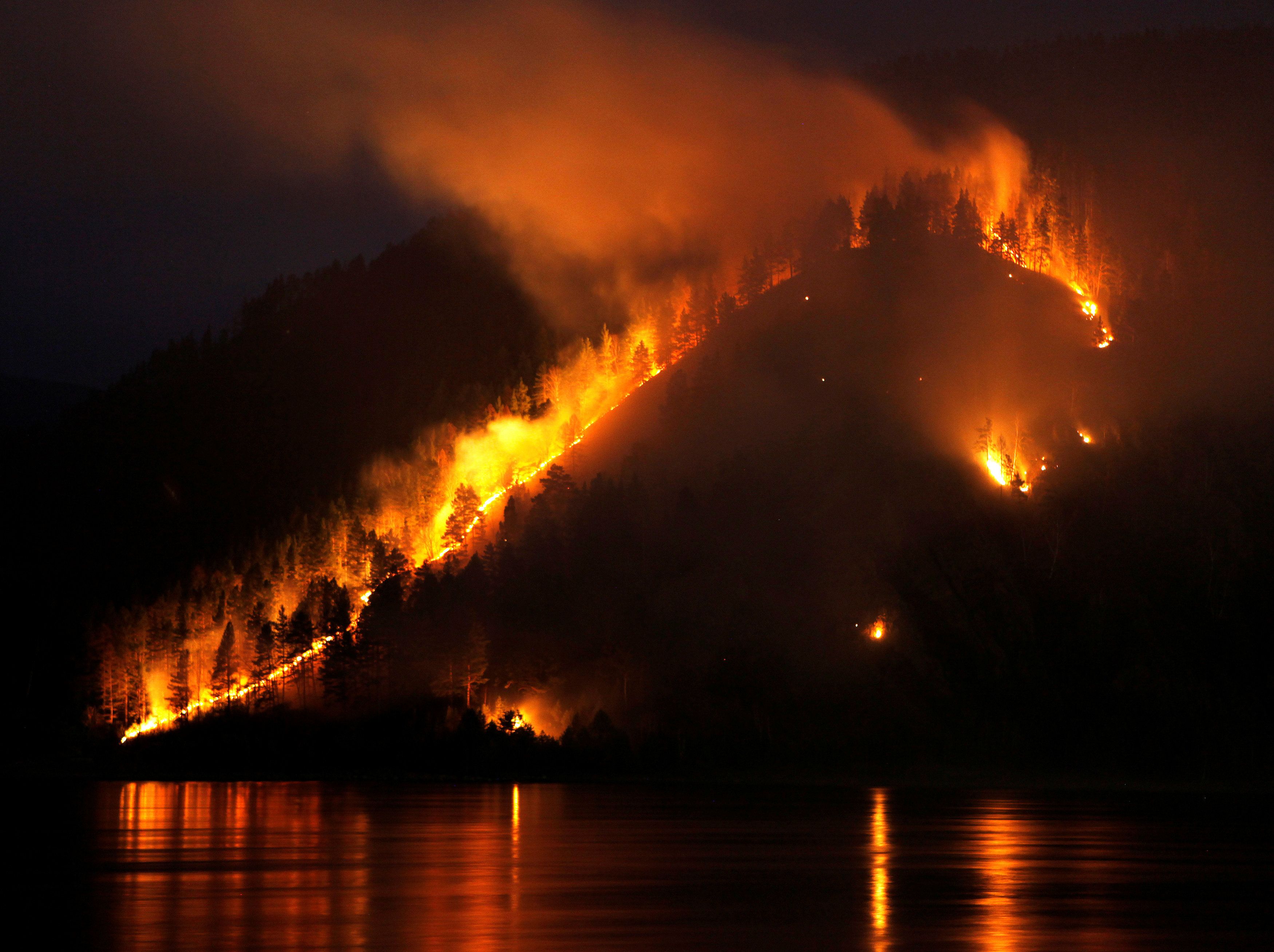What We're Watching: Vicious climate cycles and Merkel's successor in the "ejector seat"
The burning Arctic – Scientists are tracking an "unprecedented" number of fires burning north of the Arctic Circle in Greenland, Russia, Canada, and Alaska after a record summer heatwave. By one estimate, the fires released more carbon dioxide than Sweden's entire annual emissions in June alone. It's the kind of feedback loop that we're likely to see more of as global temperatures continue to rise: a heat wave dries out tundra, then fires release huge amounts of CO2, further warming the planet. This problem increases the risk that politically disruptive effects of climate change – like mass migrations or geopolitical competition for ice-free Arctic sea lanes and undersea resources – will arrive (much) more quickly than expected.
Germany's "ejector seat" – Annegret Kramp-Karrenbauer, Angela Merkel's would-be successor as German chancellor, became the country's defense minister last week. The defense job is one of the most important and highest-profile positions in the German federal government, but it's also nicknamed the "ejector seat" because a succession of German politicians who served in this post later saw their political ambitions go down in flames. Can AKK, who has riled some party stalwarts by tacking to the right as leader of the Christian Democrats, use the position to revitalize her political fortunes? Or will her bid to eventually replace Merkel crash and burn?
What We're Ignoring:
A US migration deal with Guatemala – On Friday, President Trump got Guatemala to agree to a deal that, if implemented, could help reduce the number of Central American migrants seeking refuge in the US: Guatemala will require migrants transiting through the country from Honduras and El Salvador to apply for asylum there first. In return, the US will give more farm worker visas to Guatemalans. There are serious problems with this deal. It might be illegal , for one thing. Guatemala's border force is barely staffed and hasn't processed an asylum case in years, according to Vice. And Guatemala itself has become so violent that it sent more migrants fleeing to the US than either Honduras or El Salvador in 2018.
Boris Johnson's Brexit ad blitz – The new UK prime minister plans to spend £100m printing leaflets, putting up billboards, and airing radio and television ads to prepare the British public in case the UK crashes out of the European Union without a withdrawal agreement. It's part of Johnson's two-track strategy to increase political pressure on EU negotiators to tweak the UK's Brexit deal to make it more palatable to parliament, while also prepping for no-deal just in case. We're ignoring this story, because Brussels already knows exactly what Johnson is up to.
